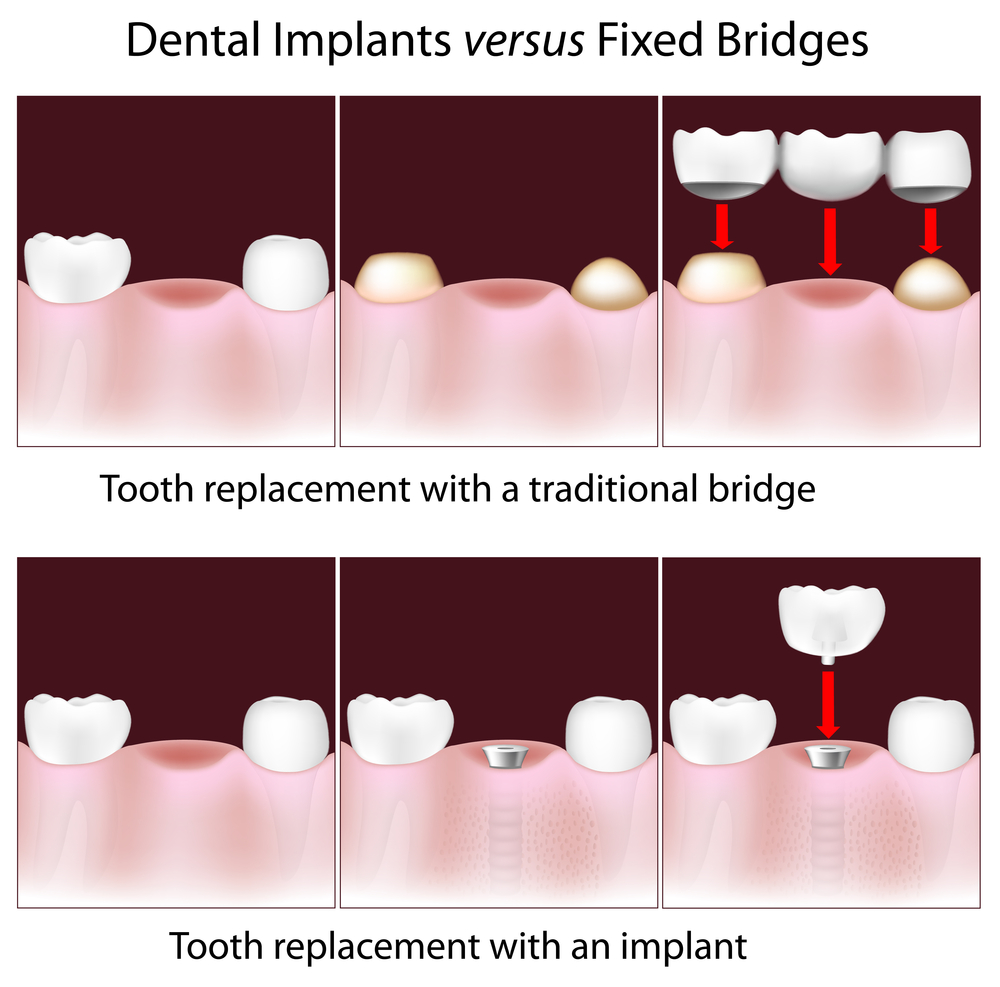Introduction
Dental bridges are a popular solution for replacing missing teeth. They are fixed prosthetic devices that bridge the gap created by one or more missing teeth. This article will provide an in-depth understanding of dental bridges, including the different types available, the costs involved, and the benefits they offer.
Types of Dental Bridges
1. Traditional Dental Bridges
Traditional dental bridges are the most common type of bridge used. They consist of one or more pontics (artificial teeth) held in place by dental crowns on either side. The crowns are cemented onto the natural teeth adjacent to the gap, creating a sturdy and functional bridge.
2. Cantilever Dental Bridges
Cantilever dental bridges are similar to traditional bridges, but they are supported by a dental crown on only one side. This type of bridge is used when there is only one natural tooth adjacent to the gap.
3. Maryland Dental Bridges
Maryland dental bridges, also known as resin-bonded bridges, are made of porcelain or porcelain fused to metal. They are held in place by a metal or porcelain framework that is bonded to the back of the adjacent teeth. Maryland bridges are a conservative option as they require minimal alteration of the natural teeth.
4. Implant-Supported Dental Bridges
Implant-supported dental bridges are considered the most stable and durable option. They are supported by dental implants that are surgically placed into the jawbone. These bridges are an excellent choice for individuals with multiple missing teeth or those who do not have strong adjacent teeth to support traditional bridges.
Costs of Dental Bridges
1. Factors Affecting Cost
The cost of dental bridges can vary depending on several factors, including:
- Number of missing teeth
- Type of bridge chosen
- Materials used
- Geographical location
- Dentist’s experience and expertise
Summary

Dental bridges are an effective solution for individuals who have lost one or more teeth. They are custom-made prosthetic devices that are anchored to the adjacent teeth or dental implants, filling the gap and restoring the natural appearance of your smile. There are several types of dental bridges, including traditional bridges, cantilever bridges, Maryland bridges, and implant-supported bridges. The cost of dental bridges can vary depending on factors such as the type of bridge, materials used, and the complexity of the case. However, dental bridges are generally considered a cost-effective option for tooth replacement. The benefits of dental bridges extend beyond aesthetics, as they also improve speech, chewing ability, and prevent the shifting of surrounding teeth. By understanding the differ ent types, costs, and benefits of dental bridges, you can make an informed decision about whether this dental restoration option is right for you.
- What is a dental bridge?
- A dental bridge is a fixed dental restoration used to replace one or more missing teeth. It consists of artificial teeth (pontics) that are held in place by dental crowns on the adjacent teeth.
- What are the types of dental bridges?
- There are several types of dental bridges, including traditional bridges (held by dental crowns), cantilever bridges (supported by a dental crown on one side), Maryland bridges (held by a metal or porcelain framework), and implant-supported bridges (anchored to dental implants).
- How much do dental bridges cost?
- The cost of dental bridges can vary depending on factors such as the type of bridge, the materials used, the location of the dental clinic, and any additional procedures required. On average, dental bridges can cost between $500 and $1,200 per tooth.
- What are the benefits of dental bridges?
- Dental bridges offer several benefits, including restoring the ability to chew and speak properly, maintaining the shape of the face, distributing bite forces evenly, preventing remaining teeth from shifting, and enhancing the appearance of the smile.
- How long do dental bridges last?
- The lifespan of dental bridges can vary depending on various factors such as oral hygiene practices, regular dental check-ups, and the materials used. With proper care, dental bridges can last between 5 and 15 years or even longer.

Hello, and welcome to my website! My name is Thomas Anderson, and I am thrilled to share my passion for dental hygiene with you. As a professional dental hygienist, I have dedicated my career to helping individuals achieve optimal oral health and maintain beautiful smiles.



